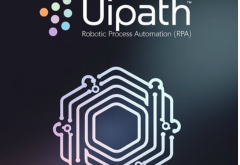New Study Reveals AWS Cloud Can Slash Carbon Emissions by Up to 99%
A recent study by Amazon Web Services (AWS) and Accenture has found that optimizing AI workloads on AWS can significantly reduce carbon emissions compared to traditional on-premises infrastructure. The study highlights that AWS’s global infrastructure is up to 4.1 times more efficient than on-premises setups. For Indian organizations, migrating AI workloads to AWS could cut carbon emissions by as much as 99%.
The research indicates that using AWS data centers in India can lead to a 98% reduction in carbon emissions for compute-heavy AI workloads compared to on-premises data centers. This reduction is attributed to AWS’s use of more efficient hardware (32%), improved power and cooling efficiency (35%), and increased procurement of carbon-free energy (31%). Further optimization through AWS’s specialized silicon could enhance this reduction to up to 99% for Indian organizations.
Jenna Leiner, Head of Environment Social Governance (ESG) and External Engagement at AWS Global, emphasized the significant sustainability opportunity for Indian organizations. She noted that, with 85% of global IT spending still on-premises, the potential 99% carbon reduction for AWS-optimized AI workloads represents a substantial step towards achieving India’s net-zero emissions goal by 2070. Leiner also highlighted AWS’s ongoing innovations in data center design, chip technology, and cooling solutions to boost energy efficiency.
Accenture’s Sanjay Podder echoed the study’s findings, noting that AWS’s focus on hardware efficiency, carbon-free energy, and purpose-built silicon can greatly reduce the carbon footprint of AI and machine learning workloads while driving innovation.
AWS’s commitment to energy efficiency includes investments in custom chips such as the Graviton and the latest Graviton4, which offer significant performance improvements and energy savings. AWS customers like Paytm and IBS Software have reported substantial reductions in carbon emissions by adopting these processors.
AWS’s advancements in silicon technology, including the AWS Trainium and AWS Inferentia chips, are designed to further enhance energy efficiency and performance for AI workloads. These innovations contribute to reduced power consumption and cost, supporting more sustainable AI model training and inference.
AWS has also improved energy efficiency in its infrastructure through innovations in power distribution and cooling techniques. By integrating small battery packs, optimizing power supplies, and employing advanced cooling methods, AWS has achieved significant reductions in energy loss and improved overall efficiency.
In alignment with its commitment to net-zero carbon emissions by 2040, AWS has already achieved 100% renewable energy for its global operations and is transitioning its infrastructure to match this goal. In India, AWS data centers have been powered entirely by renewable energy since 2022, supported by investments in 50 renewable energy projects with a capacity of 1.1 gigawatts.
For more information on reducing carbon emissions through AWS, visit the AWS website or follow updates on their official social media channels.
 Latest Technology News Today – Get Latest Information Technology Updates and Services Latest Technology News Today – Get Latest Information Technology Updates and Services
Latest Technology News Today – Get Latest Information Technology Updates and Services Latest Technology News Today – Get Latest Information Technology Updates and Services 









